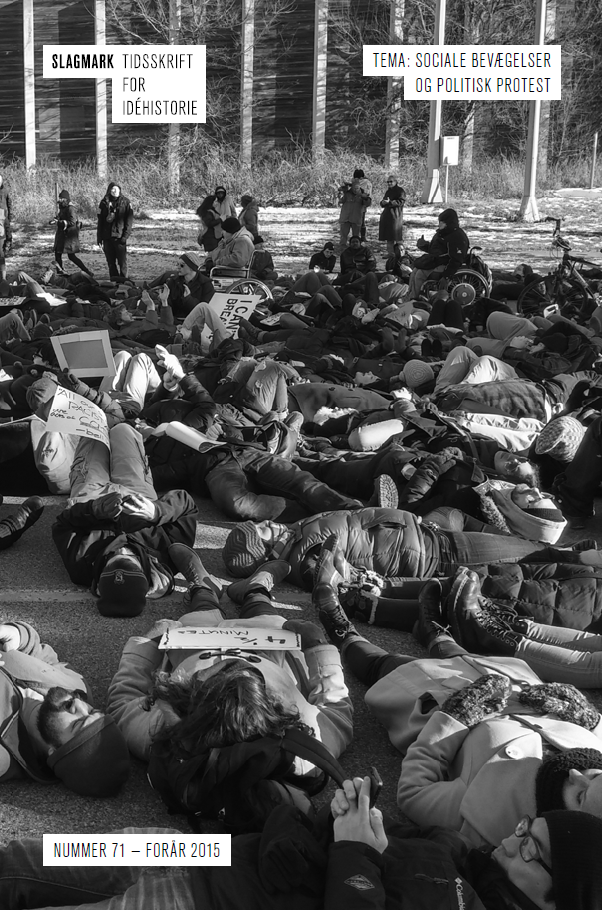Det rådsdemokratiske ideal og protesten som selvorganisering
DOI:
https://doi.org/10.7146/sl.v0i71.107316Keywords:
The council movement, Political protests, Democracy, Hannah Arendt, Cornelius CastoriadisAbstract
How should we evaluate the global protests against the financial crisis from 2011 and onwards? Do demonstrations on central squares such as Syntagma, Puerta de Sol and Zucotti Park point towards alternative democratic models beyond representative democracy? This article identifies a schism between the protests as events and the protests as self-organisation. Whereas the protests as events remains the dominant interpretation of the protests – delivered with negative connotations by Ivan Krastev and with positive consequences by Slavoj Žizek and Alain Badiou – this article will investigate the protests as self-organisation by emphasizing some of the many examples of autonomous political institution-building and creation of permanent structures of political participation, which have appeared as natural continuations of the protests. I argue that the protests as self-organisation can be seen as re-actualisations of the practices and ideals of council democracy as interpreted by Hannah Arendt and Cornelius Castoriadis. By interpreting the protests through the prism of council democracy, I argue that the manifold political and societal initiatives that have appeared in the wake of these protests attempt to realise a specific notion of democratic autonomy and political freedom.
References
Arendt, H. (1958). Totalitarian imperialism: Reflections on the Hungarian revolution. The Journal of Politics, 20(01), 5–43. doi:10.2307/2127387
Arendt, H. (1972). Crises of the Republic. New York: Harcourt Brace Jovanovich.
Arendt, H. (2005). Menneskets vilkår. København: Gyldendal.
Arendt, H. (2012). Om revolution. Aarhus: Klim.
Badiou, A. (2012a). Metapolitics. London: Verso.
Badiou, A. (2012b). The Rebirth of History: Times of Riots and Uprisings. London: Verso.
Bonnet, A. (2014). The Idea of Councils Runs through Latin America. South Atlantic Quarterly, 113(2), 271-283. doi:10.1215/00382876-2643612
Breckman, W. (2013). Adventures of the Symbolic: Post-Marxism and Radical democracy. New York: Columbia Univesity Press.
Castoriadis, C. (1988). Political and Social Writings: Vol. 2. Minneapolis: University of Minnesota Press.
Gramsci, A. (1994). Pre-Prison Writings. Cambridge: Cambridge University Press.
Hirschman, A. (1990). Exit, Voice and Loyalty: Responses to Decline in Firms, Organizations and States. Cambridge: Harvard University Press.
Krastev, I. (2014). Democracy Disrupted: The Politics of Global Protest. Philadelphia: University of Pennsylvania Press.
Marx, K. (1996). Later Political Writings. Cambridge: Cambridge University Press.
McConkey, M. (1991). On Arendt’s vision of the European council phenomenon: Critique from an historical perspective. Dialectical Anthropology, 16(1), 15–31. doi:10.1007/bf00247767
Medearis, J. (2004). Lost or Obscured? How V. I. Lenin, Joseph Schumpeter, and Hannah Arendt Misunderstood the Council Movement. Polity, 36(3), 447–476.
Newman, S. (2014). Occupy and Autonomous Political Life. I A. Kioupkiolis & G. Katsambekis (red.), Radical Democracy and Collective Movements Today: The Biopolitics of the Multitude versus the Hegemony of the People (s. 93-111). Burlington: Ashgate Publishing Company.
Prentoulis, M. & Thomassen, L. (2014). Autonomy and Hegemony in the Squares: The 2011 Protests in Greece and Spain. I A. Kioupkiolis & G. Katsambekis (red.), Radical Democracy and Collective Movements Today: The Biopolitics of the Multitude versus the Hegemony of the People (s. 213–234). Burlington: Ashgate Publishing Company.
Sitrin, M. & Azzelini, D. (2014). They Can’t Represent Us!: Reinventing Democracy from Greece to Occupy. London: Verso.
Thorup, M. (2012). Om Arendt og revolutionerne – Efterskrift. I Om Revolution (s. 333-359). Aarhus: Klim.
Žižek, S. (2012). The Year of Dreaming Dangerously. London: Verso.
Žižek, S. (2014). Event: Philosophy in Transit. New York: Penguin.





